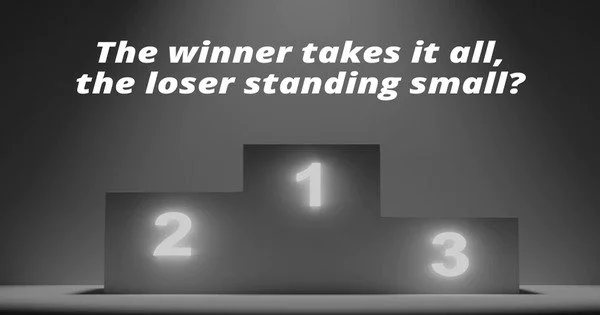If we consider life to be an unequal contest between beings, there will always be winners and losers in the pursuit of goals. Whether it’s a brutal fight for food between two predators or a sporting contest between athletes, the spoils go to the winners, not the losers. It indicates a competitive element in the lyrics of the preceding song. Participants in competition would have disparate abilities and motivations.
Finally, one would emerge as the victor, having triumphed through sheer force of will and by capitalizing on his strengths, cunning, or talents. For example, the winner of a talent show for singers would have demonstrated his singing and delivery abilities. However, he would have demonstrated perseverance and stamina along the way to outlast the other contestants. In any contest between two participants of equal ability, such as two tigers pursuing a deer, luck may play a role. The leading tiger may strain a muscle or trip over a stone. The less skilled contestant would then catch the prey and emerge victorious.
There must be advantages to being a winner, or there would be no contestants. However, there are advantages to being a winner that can be gained along the way. Hard work, perseverance, and fortitude could have been taught to the contestants. They could have also been rewarded for learning how to capitalize on opportunities and when to be aggressive, patient, or discrete.
Winners, such as those in a marathon or the first man to achieve a medical breakthrough, would receive the praise and acclaim that they deserved from an admiring public. Money and fame could be on the way. What about those who have suffered a loss? No one likes a loser, it is said. Consider the Olympic Games. People remember the recipients of the gold medals but do not quite remember the silver medal recipients. For the losers, it would be hard to remember their participation!
We should, however, commiserate with the losers. They have displayed the courage of striving participants in a contest or competition. They should be encouraged to continue taking part in future quizzes or essays where the losers do not take away anything. Far be it for us to discourage and add to the feelings of sadness and inadequacy of those who lose. Losers should also learn to accept their losses as no one loves a sore loser. Those who had lost should also learn to acquire the skills that winners employed to emerge winners like skills of cultivating the necessary talents, patience, courage, perseverance, and so on.
We should also consider whether winners and losers should always exist. Why should there be only two sides, winners and losers? The business world has learned the value of a win-win situation. Take, for example, the following scenario. A company could offer a superior product to the public at a reasonable price. The product would be well received by the general public, and the company’s profits could increase due to increased volume even though the company’s standard price had been reduced. Both the company and the general public would benefit or be “winners.”
This ‘win-win’ philosophy could be taught in schools. Otherwise, top students are frequently feted, while poor students at the bottom are labeled as dunces. This is not to say that competing or striving for first place does not fuel an achievement-based culture. However, it is important to recognize that every contestant is most likely giving his or her all. Furthermore, not everyone can be a winner. As spectators, our role should be to encourage all competitors, regardless of winners and losers. In the case of schools, a student should be encouraged to develop his talents in any field in which he is interested or has aptitude. In this way, he can emerge a winner in his own right, if not in school but later on in life.
















